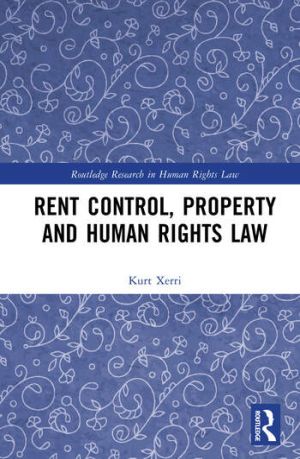
This book offers a comprehensive study of the European Court of Human Rights jurisprudence on rent controls. It examines how the Court has balanced the right to property under the Convention against states responsibilities to secure affordable housing. By analysing both landmark and lesser-known cases, the book seeks to define the parameters of legality in rent control, clarifying the thresholds at which such measures constitute violations, the standards of compensation applied, and the remedial action expected of states. Readers will benefit from a detailed account that bridges legal doctrine and housing policy debates. The work clarifies the limits imposed by the Convention on states’ discretion to regulate rents and provides concrete insights into how the Court’s evolving jurisprudence influences both national reforms and the broader discourse on the balance between property rights and social welfare.
The book will be of interest to scholars and practitioners of property law, human rights law, and housing law, while also appealing to researchers in housing policy, economics, and urban studies who seek to understand the legal boundaries shaping rental market regulation. It will be of particular interest to academics working on European housing policy and to lawyers dealing with constitutional and human rights litigation.